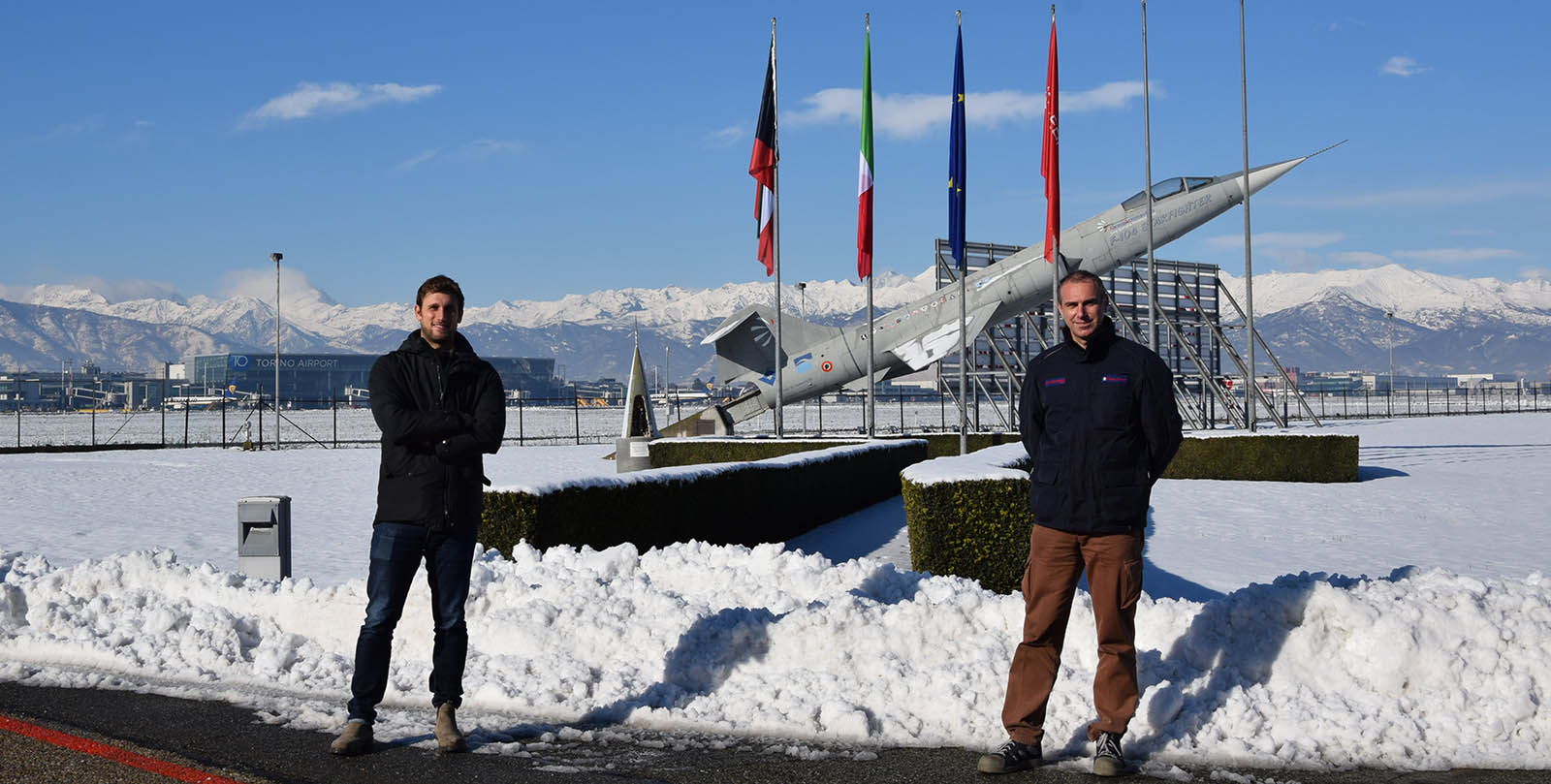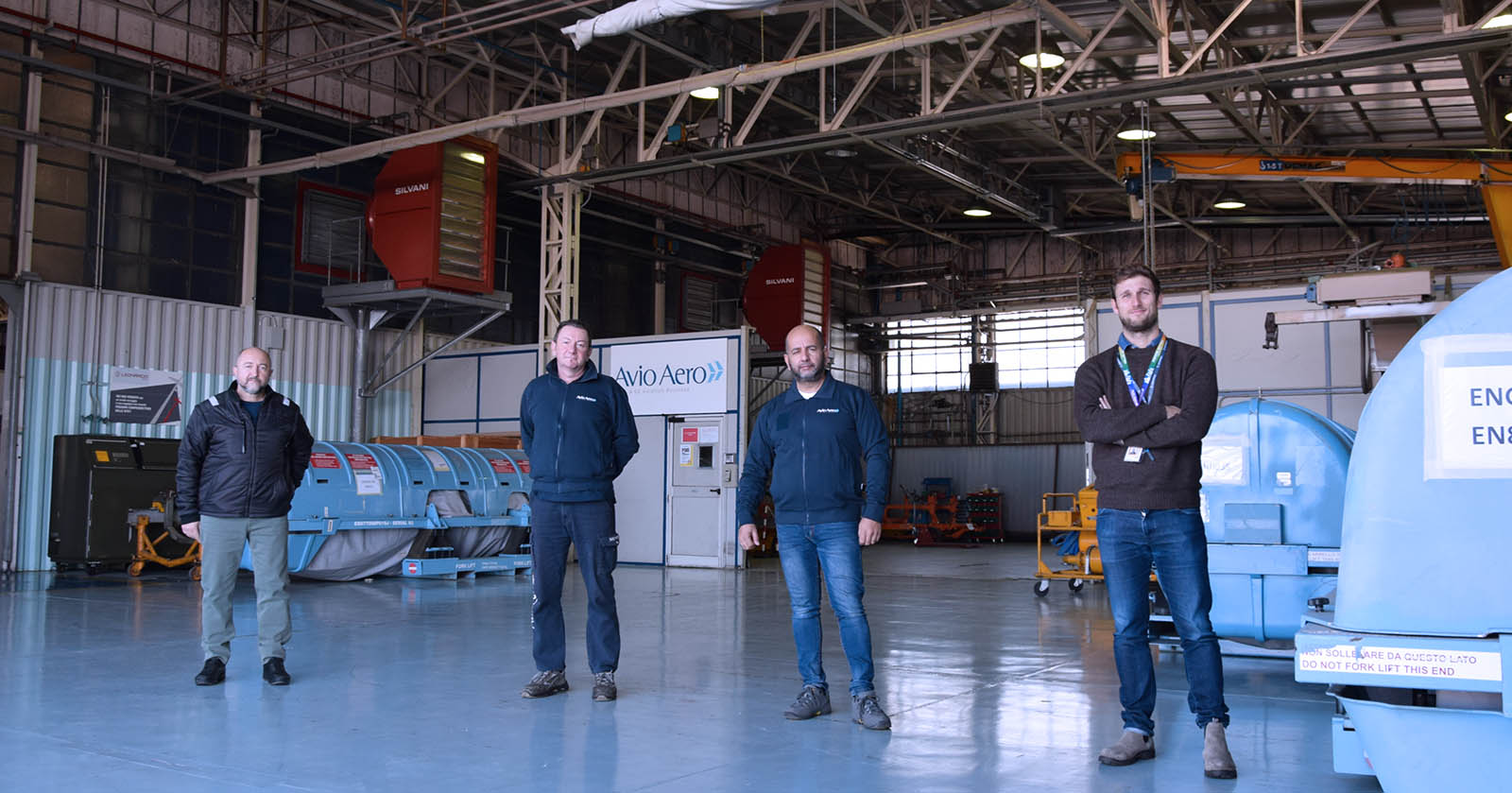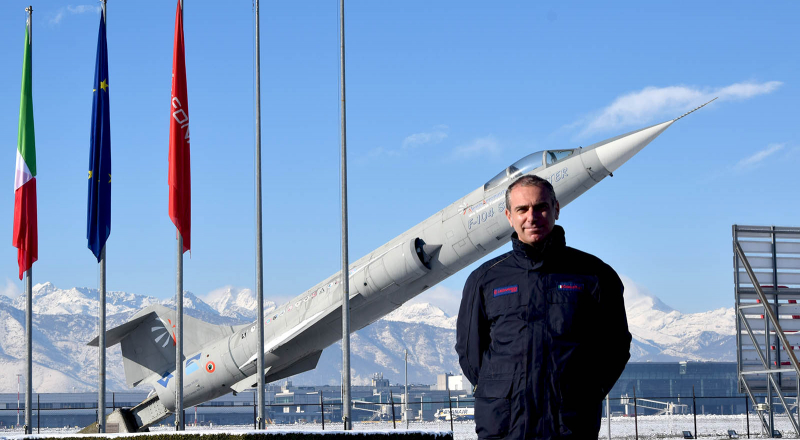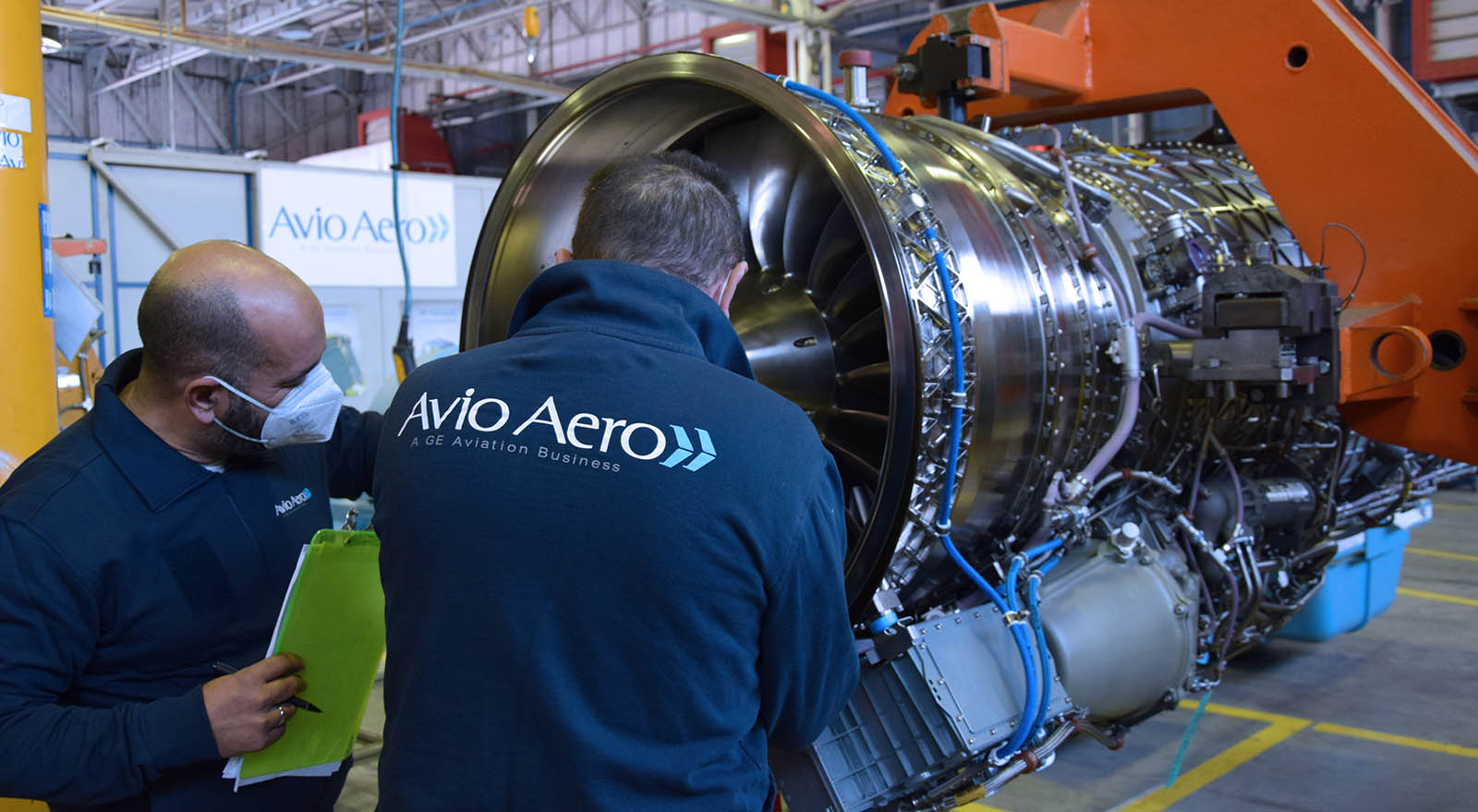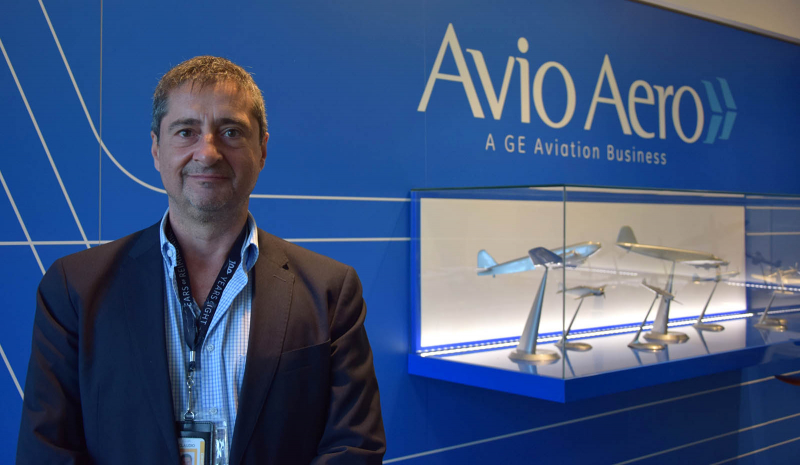Aviation
Typhoon, upon delivery
Caselle is home to a unique operations center for Eurofighter Typhoons and their EJ200 supersonic engines, dedicated to the Italian Air Force as well as to a new export customer.
Dec 2021
An evocative view of Turin airport, its terminal and runways surrounded by a view of the Alps, can be admired from the tarmac that runs alongside the large military aircraft hangars at the Leonardo Aircraft site in Caselle. Here, between the northern and southern areas of the site, about 2,000 people from Leonardo are employed (technicians, specialized operators and office staff). It is also home to the Avio Aero Flight Test Center, dedicated to engine service for the same aircraft.
The south side is used for aircraft undergoing development, as well as preventive and corrective maintenance, hardware and software configuration updates, engine tests, flight preparation and subsequent checks, while the north side houses the aircraft build line for the Eurofighter Typhoon. In other words, this is the place where the Typhoon - which has 661 units on order and represents the largest industrial program for Defense in Europe - is built.
“On the build line, activities like structural assembly, equipment rigging, engine installation, pre-testing, and painting are performed. From here, the aircraft is then transferred to the south area for engine testing and test flights, performed by our test pilots,” explains Luca Matta, Leonardo’s Final Assembly Line Fighters Manager. “At Caselle, we also have multi-mission transport aircraft like the C-27J and Tornado defense aircraft.”
The activities that take place at Caselle Sud also involve other locations for testing, such as the Decimomannu Air Force base in Sardinia, but only in Caselle – following the presentation of the aircraft’s Certificate of Conformity – is the actual transfer of ownership of the aircraft finalized on final delivery. This is what happened with all the aircraft for the Italian Air Force and, recently, the Kuwaiti Air Force, which recently took delivery of the first two brand-new aircraft it ordered.
After Austria, Saudi Arabia, Oman and Qatar, Kuwait also chose the Eurofighter Typhoon for its air force thanks to an intergovernmental agreement, signed in 2016, which further strengthened the collaboration between Kuwait and Italy.
This makes a total of 28 new aircraft, which for Avio Aero – through the Eurojet consortium it is part of along with Rolls Royce, MTU, and ITP – translates into sixty EJ200 engines. On these engines, Avio Aero is responsible for the production and design of modules and key components (low-pressure turbine, accessory gearbox, oil tanks and pumps, and auxiliary power units), as well as being the exclusive supplier of engine support and maintenance services for the Italian Air Force.
“Avio Aero is engaged at the forefront of a so-called ‘Export’ campaign as a Main Supporting Company,” says Roberto Grillo, Military Customer Support Leader. “This means that we play a key role in coordination and management, representing the whole Eurojet consortium, both for new engine assembly in Brindisi, and for support on the build line and flights from the Flight Test Center in Caselle, as well as typical services over the engine’s operational life, locally in Kuwait as well as through the MRO Center of Excellence in Brindisi.”
Many of the supersonic engines produced, assembled, and tested between the Avio Aero plant and the test rooms in Brindisi are destined for Caselle to equip aircraft to be delivered, and thus support the Leonardo build line. “At Caselle, we have a 5-person team, which includes technicians highly specialized in the support of complete engines, such as the EJ200 above all, but also the RB199,” says Alberto Buonvino, Avio Aero Flight Test Center Manager.
Buonvino, a mechanical engineer from Bari with a master's degree in Aerospace Engineering from Cranfield University, entered this “wonderful role, which requires passion and fierce commitment” last September, taking over from Giuseppe Moretti, former head of the team with over 30 years’ experience.
“Our mission is to provide day-to-day support to Eurofighter and Tornado flight activities. Through inspections, engine maintenance on the aircraft or in the workshop, and various tests with the engine running, we ensure that the engines are always serviceable, or safe and ready for flight. So, we’re constantly in contact with Leonardo’s technicians, as well as with Italian Air Force officers and sometimes pilots. And, of course, we cooperate with many of our other teams at Avio Aero in Rivalta, Sangone, or Brindisi.”
EJ200s have reached a very high degree of reliability thanks also to the work of Avio Aero Service, to their thoroughness in preparing the flights and their professional attention to airworthiness
The team spirit between the specialized teams of two Italian key players, working with common goals and true harmony, can also be heard in Luca Matta’s comments, who speaks of “challenges faced and won together over the years, both on a technical and human level. We’ve always found collaboration and cohesion for the effective resolution of the issues that can arise in such a complex job. The EJ200s have reached a very high degree of reliability thanks also to the work of Avio Aero Service, to their thoroughness in preparing the flights, their scrupulous care, and their professional attention to airworthiness.”
Buonvino’s experience was built in the UK. After completing his studies, he joined Rolls Royce engineering to work on fans and compressors for commercial engines and, in 2019, landed in Avio Aero engineering to work on thermal systems design for civil and military engines. This year, he had the opportunity to take over in the field, alongside super-experts, embarking on a career as an engine product operations manager.
“For an aviation enthusiast, living in contact with the flying product is a dream come true, not to mention the aspects related to safety and quality. Seeing the aircraft in action reminds you that any engineering analysis or activity has direct feedback on the engine, and therefore directly affects the aircraft you have in front of you,” says Buonvino. “Emotionally, it’s more engaging than design work, because in this context you develop unique skills on the product. Technical skills, but above all operational skills. You make decisions to make the engine ‘flyable’, you experience the engine-aircraft interaction in person, with the privilege of being able to build an outlook and skills as a systems engineer (applicable to any other aeronautical program).”
Action, unpredictability, and variability of flight requirements, as well as a sense of responsibility, are sources of incentive for Buonvino and his team at Caselle. Along with contracts, procedures, operations, and certifications, the team also enjoys special human experiences that a job as exciting as it is demanding can present. This is certainly true for one of his most experienced colleagues on military engines, a Service and Testing specialist who saw the EJ200 come to life, undergo its first certification tests, and enter service in 1997. He is now in charge of closely following the new engines for the Kuwaiti Eurofighters.
Claudio Lupi is one of the most senior figures at Avio Aero. He joined the company in 1987, working on the development of the very first test cell for the Eurofighter engine at Avio Aero’s Sangone Test Center. From there, he accompanied the first engines on their respective aircrafts and then directly on the runway, joining the Caselle team in 1996. In the meantime, he gained a variety of experience in close contact with aircraft. “When I started working at Turin airport, I followed test flight activities and then decisions relating to engines/aircrafts produced for the Italian Air Force. I also went on to work on the RB199 and SPEY for the AMX,” says Lupi, leaving for the Middle East.
“All the knowledge I've accumulated and the certificates I’ve obtained, such as the Ground Runner certification for Eurofighter and Tornado, have allowed me to broaden my horizons in terms of aircraft type and therefore propulsion,” continues Lupi. “For example, still with Leonardo but at their Helicopter Division sites, I’ve followed our T700 for NH90 helicopters. And, remaining in contact with the Sangone center at all times, specializing in the various engine or component testing techniques, I’ve even had the chance to work at a few Air Force bases, like Grosseto, Cameri, and Gioia del Colle.”
In January, I will be joined by two colleagues, very well-trained on the EJ200 coming from Cameri, but also others from Turin and Brindisi, I'll have an even larger Avio Aero team here with me
Lupi just landed at Ali Al Salem Air Base in Kuwait, after being chosen in 2020 to cover the position of Field Service Representative with the task of supporting Eurofighter engines destined for the Kuwait Air Force manufactured by Leonardo. “In January, I will be joined by two colleagues, very well-trained on the EJ200, from the Italian base in Cameri, and from Turin and Brindisi. I’ll have an even larger Avio Aero team here with me,” says Lupi.
With the arrival in Kuwait of the first two aircraft on December 14, Lupi and his team – as part of the larger Leonardo team – will begin to immerse themselves in the operative reality in Kuwait. “Providing this kind of support and complete service for operational activities is a new experience for everyone,” says Lupi.
“It will be challenging and stimulating. We’ll work on drafting procedures, consolidating practices, and day-to-day issues according to the contract, the client’s needs, and typical efficiency, compliance and quality standards. There’s a lot to build, day by day, and I think it will be a unique experience for both professional and human growth. It will be very different and fascinating to discover, as well as to understand and interpret.”



